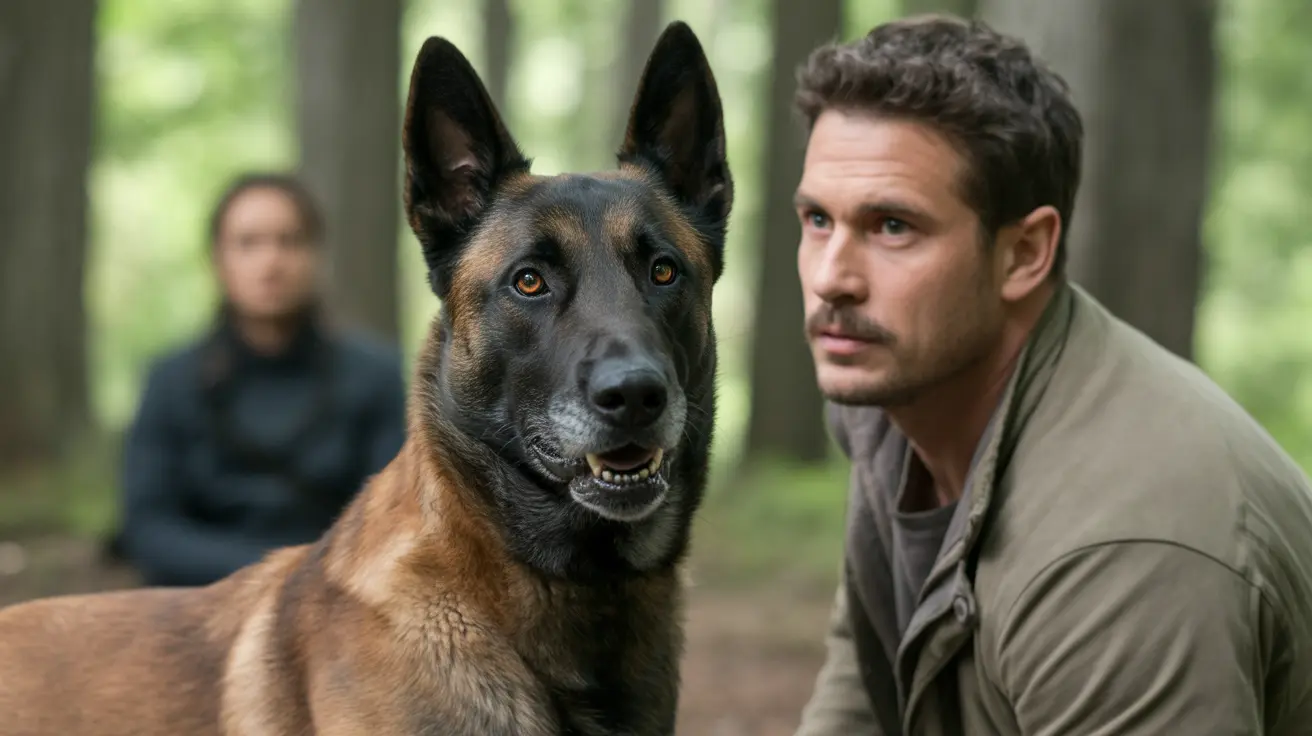Dogs have long been celebrated for their remarkable ability to read human intentions and emotions. Their keen senses and deep connection to humans make them uniquely equipped to detect when something isn't quite right about a person. This article explores the fascinating science behind how dogs sense negative intentions and what signs indicate they're picking up on someone's questionable character.
Recent scientific research has validated what many dog owners have long suspected: our canine companions can indeed detect untrustworthy or threatening individuals through a sophisticated combination of sensory perception, behavioral observation, and emotional intelligence.
The Science Behind Dogs Sensing Evil
Dogs possess an intricate array of sensory capabilities that help them evaluate human trustworthiness. Their exceptional sense of smell can detect subtle changes in human body chemistry, including stress hormones and pheromones that might indicate negative intentions. Additionally, they're remarkably adept at reading human body language and facial expressions.
Research from Kyoto University demonstrated that dogs can identify and remember untrustworthy behavior. In their study, dogs consistently refused to follow guidance from people who had previously deceived them, showing their ability to make complex social judgments.
Common Signs Your Dog Senses Something Wrong
When dogs perceive someone as potentially dangerous or untrustworthy, they typically exhibit several telling behaviors:
- Growling or barking specifically at certain individuals
- Raised hackles along their back
- Positioning themselves between their owner and the perceived threat
- Refusing to take treats from specific people
- Showing signs of anxiety or distress in someone's presence
How Dogs Evaluate Human Character
Dogs assess people through multiple channels of information:
- Physical cues and body language
- Vocal tone and patterns
- Scent markers and chemical signals
- Past experiences and learned associations
- Social interactions with their owner
Training and Your Dog's Perception
While dogs naturally possess these protective instincts, proper training can help refine their ability to distinguish genuine threats from harmless situations. Socialization plays a crucial role in developing balanced judgment, allowing dogs to react appropriately to different people and circumstances.
Real-World Applications
The ability of dogs to sense negative intentions has practical applications beyond personal protection. Service dogs, police K-9 units, and therapy animals all rely on this innate capability to perform their duties effectively. Many security companies also employ dogs specifically for their ability to detect and respond to suspicious behavior.
Frequently Asked Questions
How do dogs sense if a person is untrustworthy or has bad intentions?
Dogs combine their acute senses of smell, hearing, and sight with their ability to read human body language and emotional states. They can detect subtle changes in body chemistry and behavior that humans might miss.
Can dogs really detect evil or malevolent behavior in people?
While dogs can't literally sense "evil," they are extremely perceptive of untrustworthy behavior, negative intentions, and threatening body language. Their ability to read multiple physical and behavioral cues makes them excellent judges of character.
What are the common signs that a dog perceives someone as "bad" or threatening?
Common signs include growling, barking, raised hackles, defensive positioning, avoiding the person, refusing treats, and showing signs of stress or anxiety in their presence.
How can I help my dog react calmly to people they sense as untrustworthy?
Proper socialization and positive reinforcement training can help your dog maintain composure while still alerting you to potential threats. Working with a professional dog trainer can be beneficial.
Can training affect how well a dog senses good or bad people?
Training doesn't diminish a dog's natural ability to sense untrustworthy people, but it can help them respond more appropriately and reliably to potential threats while avoiding false alarms.
Understanding Your Dog's Warnings
While dogs' ability to sense negative intentions isn't supernatural, their natural instincts and acute senses make them excellent judges of character. Pay attention to your dog's reactions to new people, but remember to balance their responses with your own judgment and common sense.
Trust in your dog's instincts while maintaining appropriate training and socialization. This combination will help ensure your four-legged friend remains both an effective guardian and a well-adjusted companion.






